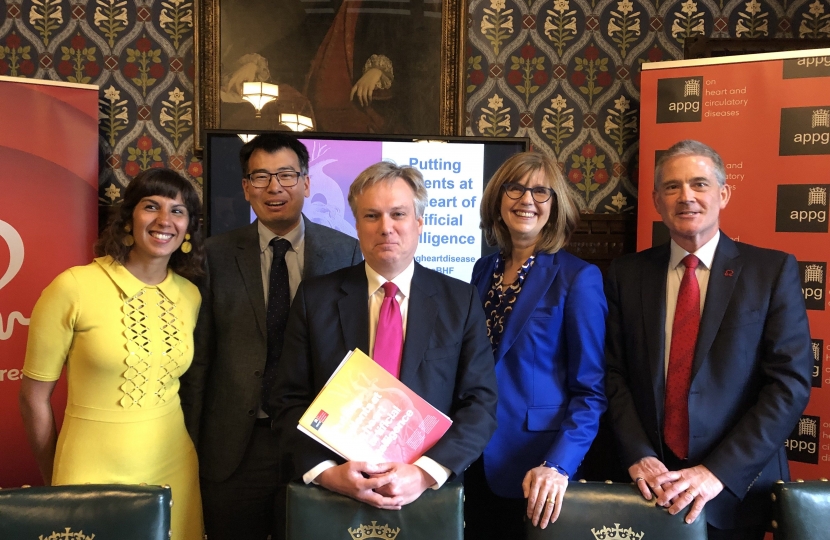
As Chair of the Heart & Circulatory Diseases All-Party Parliamentary Group I am continuing to call for greater use of artificial intelligence (AI) to support patients with such conditions.
On Thursday 5th September, I will be leading a debate in Parliament on this important subject, which follows the launch of our Group’s latest report, ‘Putting Patients at the Heart of Artificial Intelligence’ earlier in the year.
With over 17,250 more NHS doctors than in May 2010, and over 17,000 more nurses on our wards, there is more to be done to support staff and patients.
The British Heart Foundation have found that in Crawley in 2017-18, there were some 11,000 people living with a heart and circulatory condition, with an additional 16,682 people being diagnosed with high blood pressure and 7,555 with diabetes.
AI, unlike other types of computer programs, can ‘learn’ and improve at tasks. It is particularly strong at finding patterns and trends in data which are not obvious through human analysis. One such type, machine learning, is where algorithms are used to look for patterns in data, which are then used to make decisions. It looks for patterns in many different types of data – from scrutinising images to analysing genomic data.
AI can be used to support patients, and can potentially free up a GP from their computer screen and improve the interaction between doctor and patient. For this to be most effective, it is vital that patients are kept up-to-date on developments on how AI uses patient data, and the risks and benefits it brings.
A few weeks ago I welcomed the Health & Social Care Secretary’s announcement that £250 million is to be spent on a new National Artificial Intelligence Lab to improve the health and lives of patients.
This could be used to identify patients most at risk of diseases such as heart disease, allowing for earlier diagnosis and cheaper, more focused, personalised prevention.
I look forward to further raising this issue during my debate next week.
Henry Smith MP


